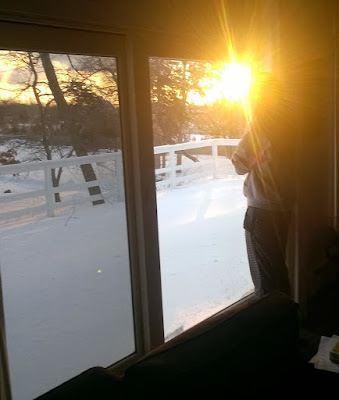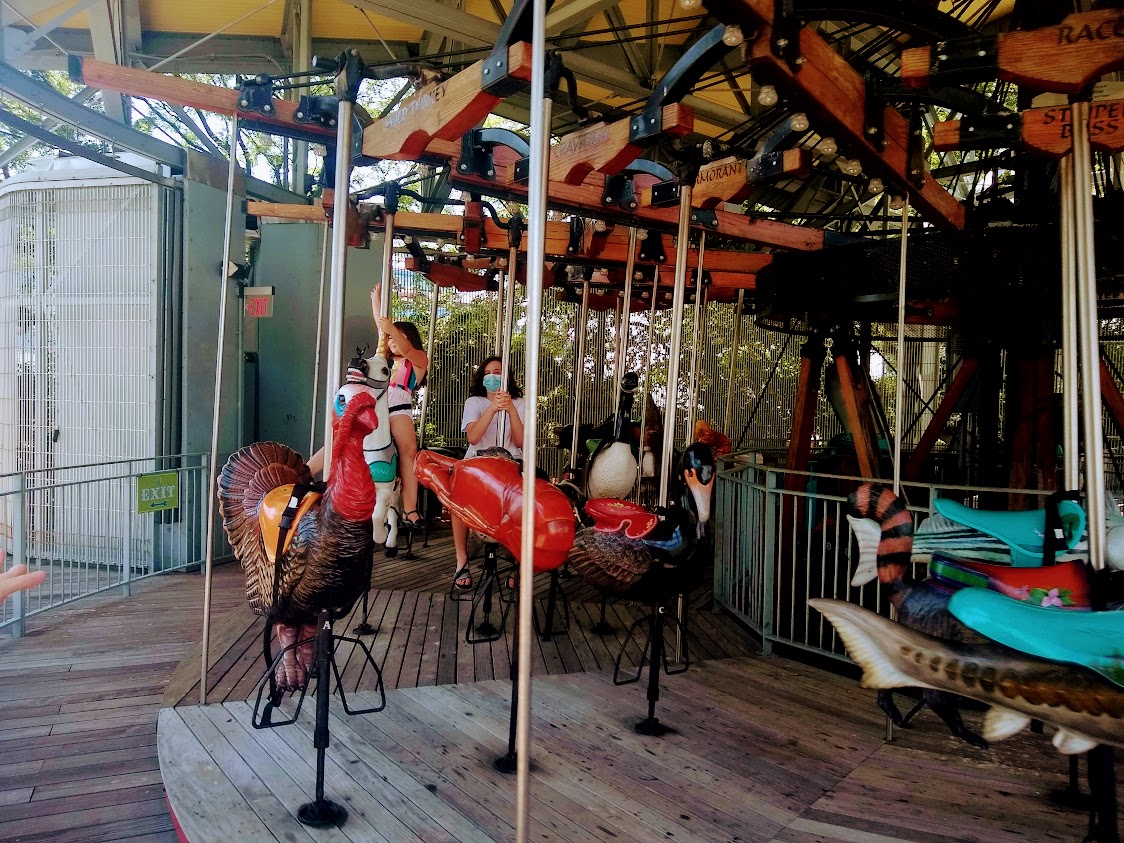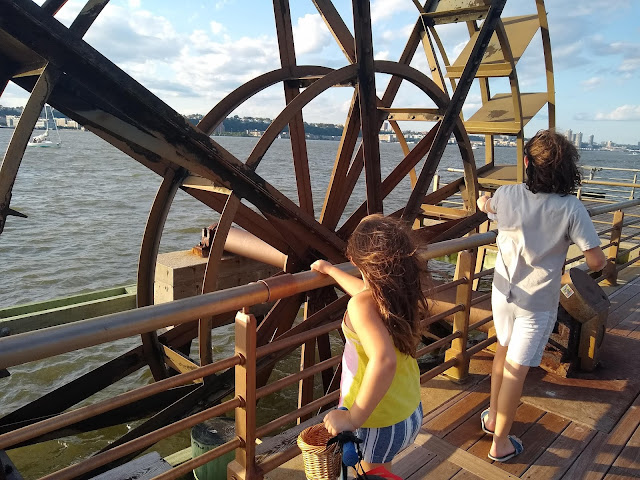The Forgetting of Things Past
This morning I came across scribbled reminder from mid-January. Nancy Colier was doing a book signing at the local library for The Power of Off: How to Stay Sane in a Virtual World. I missed it.
I have been working on a middle grade fiction book. I have a full, semi-functional draft. This is rare for me.
I've been returning to some of my short stories, too. It's satisfying and by that I guess I mean relaxing to channel my obsessions and neuroses into fiction rather than chronicle them on my blog.
One Sunday in October I had a few quick minutes to catch up with my grad-school-writer mom friend on the coast of Connecticut before catching a train back to the city. We walked along the marina and laughed about how mortifying it so often is to keep a blog. It's kind of funny to talk/think about that after I've kept one for almost seven years. More or less, often less.
I have several projects with publishers right now that are inchoate and/or maybes and/or hurry-up-and-waits. They leave me pirouetting between excitement and deflation and anxiety.
I am starting to tutor again, taking the PATH train yesterday evening to Hoboken. Remembering the Sunday I went to an art show there fourteen years ago. Those long Sundays back in those years. Red wine in the galleries and no particular place I had to be at any particular time. Talking last night with a super-bright high school student about the green light at the end of Daisy's dock. About the Dutch sailors, the "fresh green breast of the new world."
Just a week earlier I was out there near Gatsby's "old island" with our Dutch neighbors, not sailors, having given into a crazy impulse to hop in her car and drive two hours in the dark with three kids in the backseat, to arrive after 10 to absolute quiet, to bring the bags into the empty house while the kids played with lovely wooden toys in a darken sunroom, Orion bright overhead.
There are notes here too from Summer Brennan's The Oyster War: The True Story of a Small Farm, Big Politics, and the Future of Wilderness in America. I started following Summer on Twitter, and found my way to her expose of a struggle at Point Reyes National Seashore. Before reading it, I didn't know the Wilderness Act was the year of my birth. Brennan writes:
"This is what is all too often missing from the familiar wilderness scriptures of Muir and Thoreau: that the land was not empty when they found it. The first peoples of North America had already been laid waste by diseases before the settlers with their covered wagons ever started to move west." (214)
Brennan wrestles throughout with the question about what is "natural"--an obvious question given that the oysters at the farm that the government pushed out in order to protect nature do seem natural, even if a commercial operation is not. Yet those oysters were brought to California's coast most likely from New Jersey. And supporters of the farm objected to the idea of park visitors trampling through "wilderness" to take in nature as a hobby.
Her questions continue to haunt me: "When we turn to nature, what are we looking to remember, and what are we hoping to forget?" (216)
They remind me of my surprise, writing letters to constituents during my brief stint at Senator Kerry's office, of the messiness of environmental protection--not just the mess of pollution, toxic waste, greenhouse gasses--but the mess, metaphorically, of sorting out who is right, what is fair. Is it fair for the government to ask homeowners to leave cottages on the seashore their families have owned for generations? Is it fair to fishermen to ban fishing to protect an ecosystem when the fishermen has no other job he's trained to do? When he has no other means to support his family? When you are writing letters to those directly affected by what must seem to them abstract legislation, preserving resources for future generations, the lines about what is right become dramatically less clear.
What are we looking to remember, reading through scribbled notes of events we meant to attend, books we meant to read? What are we looking to forget, once we've finally established boundaries and schedules, reigned ourselves in, become more disciplined, less spontaneous, when we jump in a car with two kids after dinner, throwing off the week, the schedule, the plans for work, opting for a moment of peace, a dream of peace, a night of knowing what it would be like to own a house where "there were hardly any lights except the shadowy, moving glow of a ferryboat across the Sound"?
What are we looking to remember, when we read Gatsby, when we imagine Dutch sailors pondering the fresh green breast of a new world that was not in fact a new world, that was not a fresh green breast, that was in fact already inhabited and would presently be stolen? More importantly now—especially now, with a leader who champions bans and walls—what are we looking to forget?

I have been working on a middle grade fiction book. I have a full, semi-functional draft. This is rare for me.
I've been returning to some of my short stories, too. It's satisfying and by that I guess I mean relaxing to channel my obsessions and neuroses into fiction rather than chronicle them on my blog.
One Sunday in October I had a few quick minutes to catch up with my grad-school-writer mom friend on the coast of Connecticut before catching a train back to the city. We walked along the marina and laughed about how mortifying it so often is to keep a blog. It's kind of funny to talk/think about that after I've kept one for almost seven years. More or less, often less.
I have several projects with publishers right now that are inchoate and/or maybes and/or hurry-up-and-waits. They leave me pirouetting between excitement and deflation and anxiety.
I am starting to tutor again, taking the PATH train yesterday evening to Hoboken. Remembering the Sunday I went to an art show there fourteen years ago. Those long Sundays back in those years. Red wine in the galleries and no particular place I had to be at any particular time. Talking last night with a super-bright high school student about the green light at the end of Daisy's dock. About the Dutch sailors, the "fresh green breast of the new world."
Just a week earlier I was out there near Gatsby's "old island" with our Dutch neighbors, not sailors, having given into a crazy impulse to hop in her car and drive two hours in the dark with three kids in the backseat, to arrive after 10 to absolute quiet, to bring the bags into the empty house while the kids played with lovely wooden toys in a darken sunroom, Orion bright overhead.
There are notes here too from Summer Brennan's The Oyster War: The True Story of a Small Farm, Big Politics, and the Future of Wilderness in America. I started following Summer on Twitter, and found my way to her expose of a struggle at Point Reyes National Seashore. Before reading it, I didn't know the Wilderness Act was the year of my birth. Brennan writes:
"This is what is all too often missing from the familiar wilderness scriptures of Muir and Thoreau: that the land was not empty when they found it. The first peoples of North America had already been laid waste by diseases before the settlers with their covered wagons ever started to move west." (214)
Brennan wrestles throughout with the question about what is "natural"--an obvious question given that the oysters at the farm that the government pushed out in order to protect nature do seem natural, even if a commercial operation is not. Yet those oysters were brought to California's coast most likely from New Jersey. And supporters of the farm objected to the idea of park visitors trampling through "wilderness" to take in nature as a hobby.
Her questions continue to haunt me: "When we turn to nature, what are we looking to remember, and what are we hoping to forget?" (216)
They remind me of my surprise, writing letters to constituents during my brief stint at Senator Kerry's office, of the messiness of environmental protection--not just the mess of pollution, toxic waste, greenhouse gasses--but the mess, metaphorically, of sorting out who is right, what is fair. Is it fair for the government to ask homeowners to leave cottages on the seashore their families have owned for generations? Is it fair to fishermen to ban fishing to protect an ecosystem when the fishermen has no other job he's trained to do? When he has no other means to support his family? When you are writing letters to those directly affected by what must seem to them abstract legislation, preserving resources for future generations, the lines about what is right become dramatically less clear.
What are we looking to remember, reading through scribbled notes of events we meant to attend, books we meant to read? What are we looking to forget, once we've finally established boundaries and schedules, reigned ourselves in, become more disciplined, less spontaneous, when we jump in a car with two kids after dinner, throwing off the week, the schedule, the plans for work, opting for a moment of peace, a dream of peace, a night of knowing what it would be like to own a house where "there were hardly any lights except the shadowy, moving glow of a ferryboat across the Sound"?
What are we looking to remember, when we read Gatsby, when we imagine Dutch sailors pondering the fresh green breast of a new world that was not in fact a new world, that was not a fresh green breast, that was in fact already inhabited and would presently be stolen? More importantly now—especially now, with a leader who champions bans and walls—what are we looking to forget?



Comments
Post a Comment